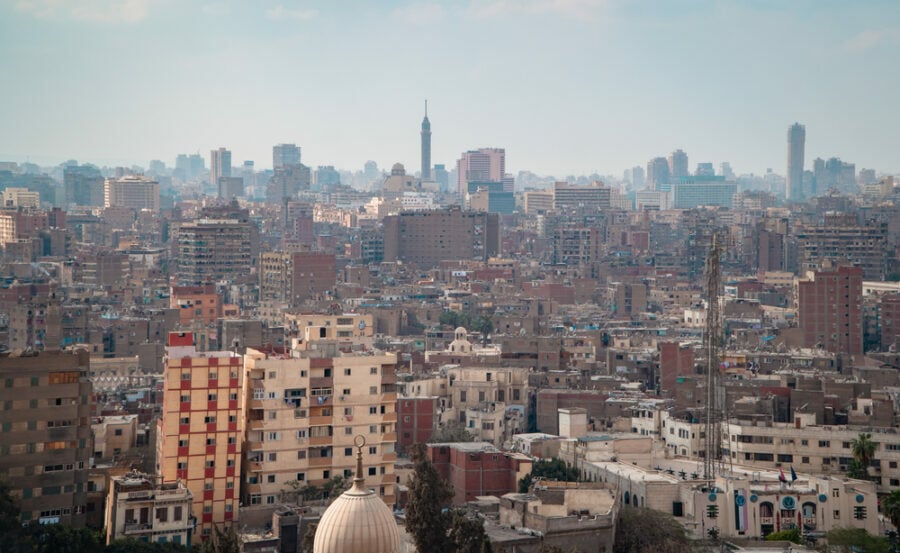Moody’s Ratings Agency affirmed Egypt’s rating at B2, but revised its outlook from “stable” to “negative.”
According to Moody’s, this negative outlook reflects the increasing side risks to Egypt’s ability to absorb external shocks.
As for the B2 rating, it is still supported by the government’s proactive response to the crisis and a proven track record of implementing economic and financial reform over the past six years.
The strong trend of GDP growth in Egypt also supports economic resilience and prospects for attracting foreign direct investment in line with the government’s privatization strategy.
However, the rating agency saw in its report, which was reviewed by “Economy Middle East”, that the strict global financing conditions increase the risks of weak cash flows compared to Moody’s current expectations to support Egypt’s external situation.
The report said: “The negative outlook reflects the high risks to the country’s sovereign ability to absorb external shocks in light of the significant tightening in foreign exchange reserves to meet the upcoming foreign debt service payments. While the external position of the economy is still supported by the large financial commitments undertaken by the oil-exporting governments in the GCC and the prospect of a new IMF program, the tightening of global financing conditions increases the risk of recurring inflows weaker than Moody’s currently expects to support Egypt’s external position.”
It noted that “susceptibility to event risk is broad and includes political risk, particularly in the context of a sharp increase in food price inflation which, if not mitigated, could increase social tensions according to Moody’s assessment of the social risk of sovereign credit; while a higher Domestic borrowing costs, if sustained, will exacerbate liquidity risks and debt sustainability challenges, both of which represent long-term weakness in Egypt’s credit profile.
Moody’s considered that the capital market turmoil caused by the Russian invasion of Ukraine, exacerbated by the tightening of global monetary policy, “led to a renewed bout of capital outflows by non-resident investors across border markets, including the local currency market in Egypt, further reducing the external liquidity of the economy already weakened during the pandemic.”
Narrow reserves also increase foreign exchange reserves relative to upcoming external debt service payments, net foreign responsibility positions in the central bank and in the commercial banking system, from downside risks to the ability to absorb sovereign external shocks amid tight global financing conditions.
Last week, the Egyptian government estimated the direct and indirect cost of the Russian-Ukrainian war on the state budget annually was at 465 billion pounds (about $25.5 billion), according to statements by the Egyptian prime minister.
The highlights of the Moody’s report
-The fallout from Russia’s invasion of Ukraine has caused an outflow by non-residents of nearly $14 billion as of mid-April from $31 billion in holdings in mid-February.
– In contrast to previous cases of severe capital outflows due to external shocks as occurred in the second half of 2018 or at the beginning of the epidemic in March 2020, the latest external shock materialized when the economy’s liquid foreign exchange reserves reached $29.3 billion in April, and it was already weak due to the epidemic and rising imports to fuel the recovery.
-The absorption of capital outflows through the banking system created a net commitment position in the monetary system that includes both the central bank and commercial banks at a value of $12 billion in March, a reading not recorded since before the flotation of the pound in November 2016 .
-The intermediate balance of payments risk is mitigated by $22 billion in financial commitments by sovereign governments in the GCC – of which $11 billion has already been deposited to support foreign currency reserves, and the rest has been pledged as foreign direct investment and asset purchases — and by signing new programs with the International Monetary Fund.
-Continuing coverage of foreign exchange reserves for future external debt service payments over the next three years by about $25-30 billion (including maturities of short-term external debt in addition to long-term external debt) will depend on continued inflows from abroad.
-While Moody’s already anticipates the government’s privatization strategy that aims to generate FDI inflows of $10 billion annually over four years in order to help boost Egypt’s foreign exchange reserves in the future, the potential for large-scale renewal inflows is estimated to be low in the near future








